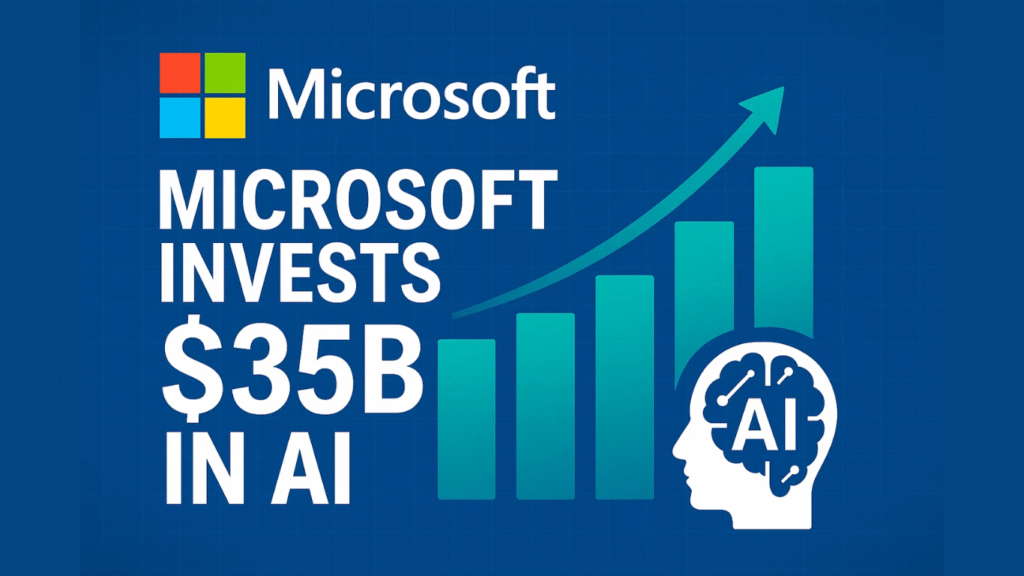Microsoft’s aggressive investment in artificial intelligence infrastructure has unsettled investors, even as the company posts robust growth in its cloud business. The tech giant reported nearly $35 billion in capital expenditures for its fiscal first quarter — a record high — and warned that spending would rise further this year, reversing earlier guidance that suggested moderation.
Shares of Microsoft (NASDAQ: MSFT) fell almost 4% in extended trading following the announcement, as Wall Street weighed the balance between rapid expansion and profit sustainability. The surge in AI-related expenses mirrors similar moves by Alphabet and Meta Platforms, both of which have cautioned about higher costs as Big Tech races to expand data-center capacity and alleviate AI infrastructure bottlenecks.
Yet, the escalating capital intensity has sparked growing debate among analysts about whether the sector is entering a mini tech bubble, drawing comparisons to the dot-com boom of the late 1990s.
Cloud Growth Defies Capacity Constraints
Despite rising costs, Microsoft’s core business remains strong.
- Azure revenue grew 40% year-over-year in the July–September quarter, surpassing Visible Alpha’s estimate of 38.4%.
- The company projects 37% growth for the current quarter, slightly above analyst forecasts.
Chief Financial Officer Amy Hood noted that growth could have been even stronger if not for ongoing supply limitations, which the company expects to persist until mid-2026.
Microsoft forecast total revenue between $79.5 billion and $80.6 billion, aligning with LSEG’s consensus of $79.95 billion. The firm also reported $77.7 billion in Q1 revenue, up 18%, with earnings of $3.72 per share, beating estimates of $3.67.
“The capex number was a little bit worrisome,” said Bob Lang, chief options analyst at Explosive Options, reflecting investor unease over the balance between growth and returns.
OpenAI Partnership and Strategic Shift
Microsoft’s revised OpenAI agreement — giving it a 27% stake valued at roughly $135 billion — further solidified its dominance in the AI ecosystem. The deal ensures access to ChatGPT models and intellectual property, key drivers behind Azure’s rapid rise.
The partnership has helped make Microsoft the world’s second-most-valuable company with a $4 trillion market capitalization, behind only Nvidia’s $5 trillion. While Microsoft’s stock has surged nearly 30% year-to-date, its latest dip underscores investor caution over mounting capital costs.
CEO Satya Nadella emphasized that Microsoft would continue prioritizing “profitable AI growth,” even if it means turning down lower-margin deals. “Each time we say no to something that doesn’t serve our long-term interest, I feel better,” he told analysts.


